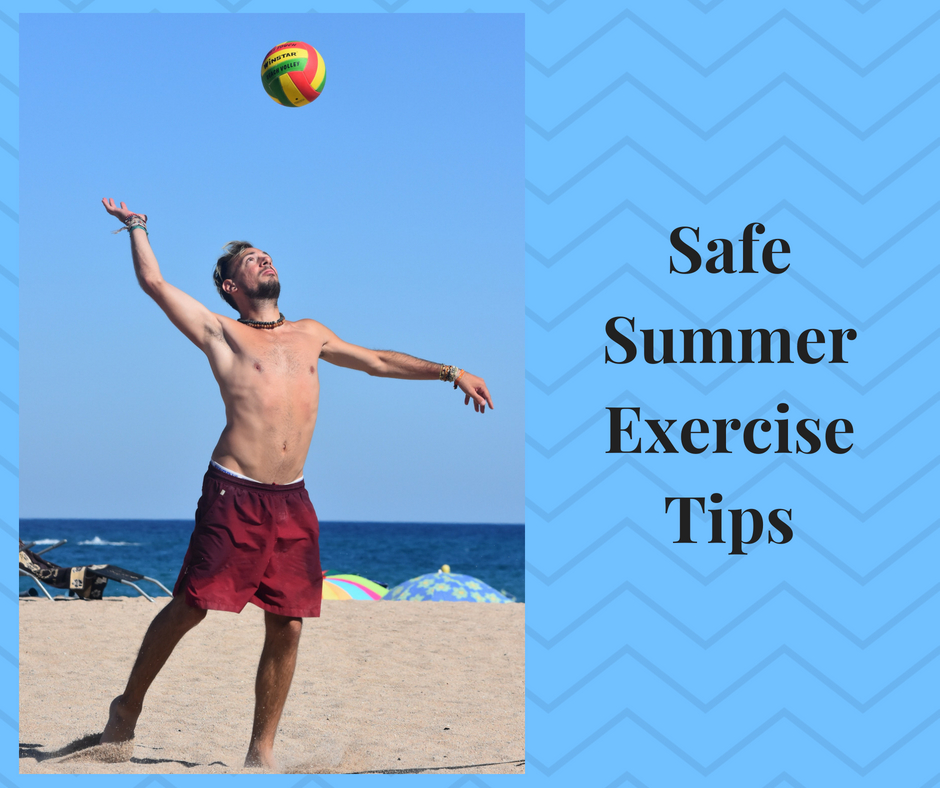Summer is officially descending on Central Texas, and it is bringing rising temperatures. This is the time of year where cold AC is a valuable commodity as some people actively avoid the scorching temperatures outside completely. Although the temperature outside can definitely feel limiting, there are some strategies and considerations that can still make being able to participate in all of the great summer outdoor activities a safe and fun experience. Check out some of the suggestions below to be prepared and make the most of your summertime activities. Be safe and have a good time!
- Be aware of the sun. Use sunscreen. Shade your eyes when possible – particularly when participating in water sports. Rest in a shady place on breaks whenever possible.
- Make sure to protect fresh surgical scars w/ sunscreen to prevent discoloration of new, fragile skin. Any new incision should not be submerged until it’s well healed.
- High air temperatures & high humidity are risk factors for developing hyperthermia, or an elevated body temperature. When this occurs, activity performance suffers for a variety of reasons.
- Hyperthermia reduces muscular endurance. It will be harder to perform activities that require long durations of activity – distance running, cycling, soccer, etc. If possible, add more break periods into training periods.
- Hyperthermia changes the way the body processes energy. The body will utilize energy faster in the heat (using more anaerobic metabolism than aerobic). It is a good idea to make sure that snacks are available and that exercise is not occurring after a prolonged fast – particularly if the activity is anticipated to go on for a long duration.
- Hyperthermia causes blood vessel dilation in the skin as the body works to cool itself. This puts more strain on the heart. The body will fatigue more rapidly and more significantly in these situations. Frequent breaks, as well as the gradual acclimation to exercise in the heat are important.
- Increased sweating will occur when exercising in high temperatures and/or in high humidity, as the body attempts to stay cool. Be sure to stay hydrated by drinking fluids frequently. Clear water is always a good choice. Sports drinks typically contain carbohydrates, electrolytes, & salt, which can help the body to maintain energy during intensive activity. These drinks also tend to have a lot of sugar, so be aware that they are often high in calories. Endurance declines rapidly with even mild dehydration. Be sure to rest when you feel tired, and do not try to push yourself to add exercise time or intensity in large quantities when training in hot climates.
- If you are recovering from injury or surgery, check w/ your PT to see if you are ready for participation in any particular summer activity that may not have already been discussed in therapy. You need to be careful with a fresh ACL reconstruction in the pool for a number of weeks, for instance. Getting in/out of pools or on/off boats requires strength, balance, & coordination.
- Even if you are healthy, but have not performed a particular activity for a while, it is a good idea to consider a gradual progression of activity to make sure that your body is ready for the specific stresses of your summer sport. Working on arm, leg, & trunk strength will improve swimming technique, for instance. And making sure that your joints and muscles are sufficiently flexible for the movements of swimming, or diving, or serving a volleyball, or floating in a tube will help you to enjoy your summer sports play.
Wishing everyone a safe, healthy, and relaxing Summer!

